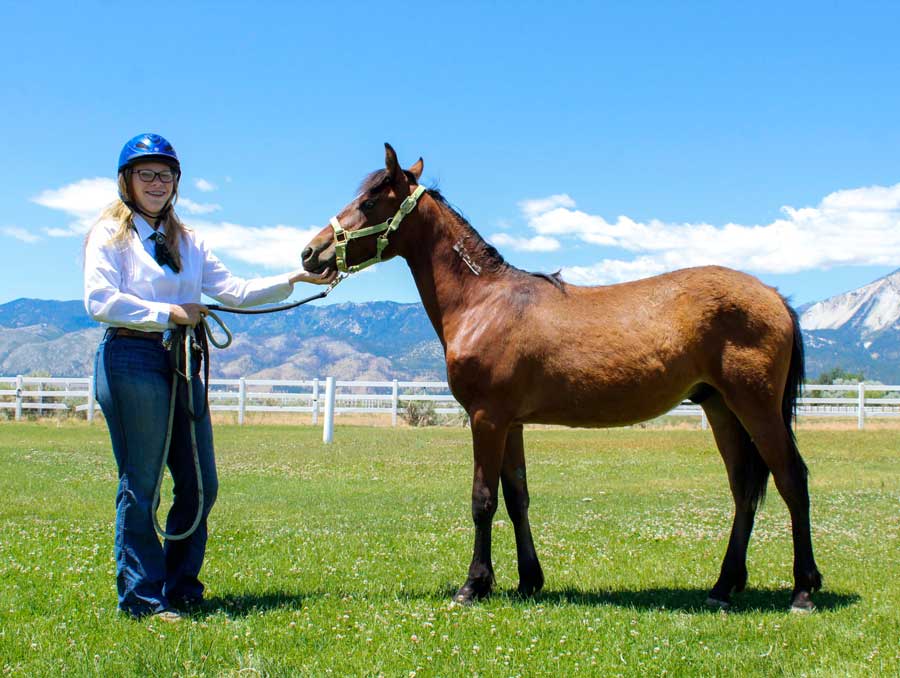This spring and summer, five youth in the Nevada 4-H Youth Development Program dedicated some of their time during the COVID-19 quarantine preparing four wild horses and one burro for adoption. On Aug. 1, the girls will show the animals, and two of the horses will be auctioned off for adoption at Nevada’s first-ever Halter-started Wild Horse & Burro Event and Adoption auction.
The girls, part of Extension’s Washoe County 4-H Horse Program, received the animals, all not yet a year old, from the Bureau of Land Management as part of a pilot program between Extension and the bureau to place wild horses with adoptive families. They spent 100-120 days preparing the horses for human interaction and adoption.
The bureau, which already operates a similar, effective program with the Nevada State Prison where prisoners train the wild horses, is always looking for new ways to rehome healthy wild horses. They saw positive results from a partnership with the bureau and 4-H in Idaho, so they wanted to pursue a similar program here in Nevada.
“They trust 4-H and trust Extension, and they know they will be able to work with youth already familiar with horses to foster and provide training to prepare these horses to be companions at new forever homes,” Sara Chvilicek, 4-H program coordinator, said. “They want to find a way to rehome wild horses because the horses are healthy animals, and they want to give these animals a chance.”
At the Aug. 1 show and auction, which takes place at the University’s Equestrian Center on Valley Road and Sadleir Way in Reno and will follow current COVID-19 requirements, the girls will be judged on their showmanship and ability to train and care for the animals. Beginning at 9 a.m., they will be evaluated on ground handling, animal health and presentations about their work with their animals. The ground handling competition includes leading the animals through an obstacle course by hand, as they are too young to ride.
At 11 a.m., bidding for adoption will begin for two of the horses. Bids start at $150, and individuals interested in adopting the horses must meet the Bureau of Land Management adoption requirements. The other two horses and burro will be adopted by the families who raised them. Proceeds for the event will be split among the bureau, the Washoe County 4-H Horse Program and the girls who raised the horses.
After the success of the pilot program in Washoe County, the bureau and Extension, a unit of the University’s College of Agriculture, Biotechnology & Natural Resources, plan to expand the program into other counties.












